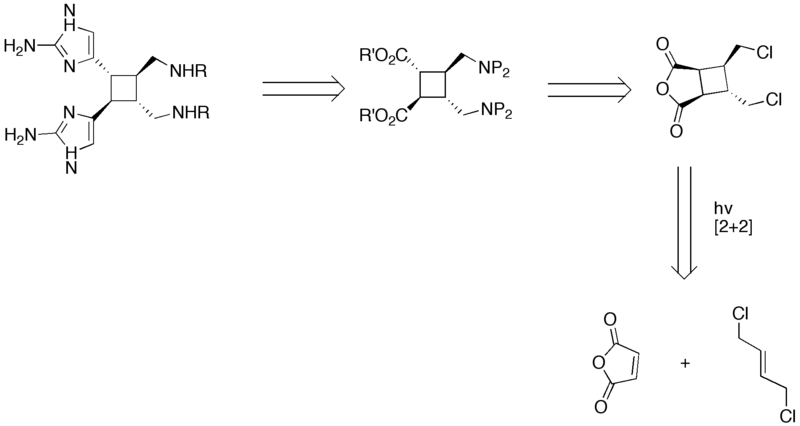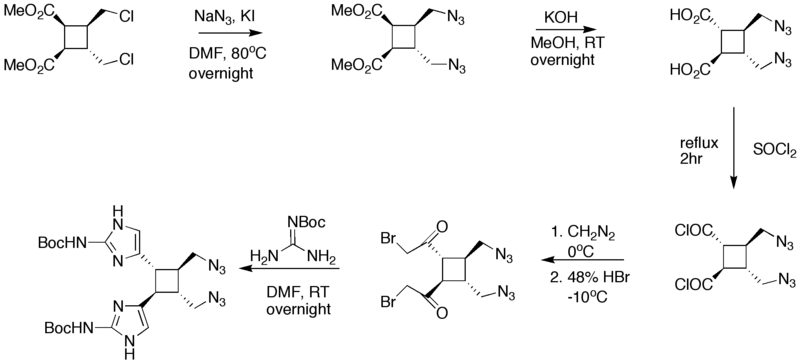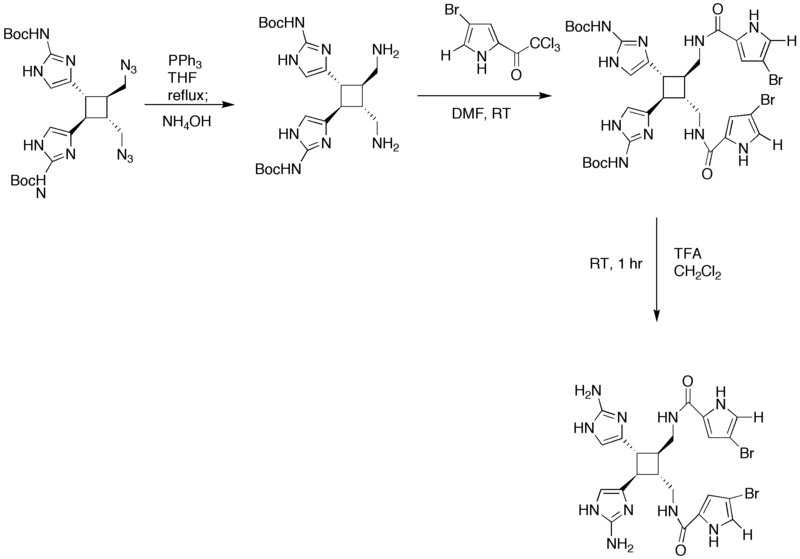Birman's synthesis of sceptrin
Sceptrin is a useful naturally occurring product found in Agelas sceptrum, a sponge that inhabits the Glover Reef in Belize. The chemical has anti-bacterial, antiviral, and anti-histaminic properties. Sceptrin also has anti-muscarinic properties. The term muscarinic is derived from muscarine, an alkaloid poison found in certain fungi.
Contents
Retrosynthesis
Synthesis of Starting compound
Synthesis of Sceptrin (2nd Generation)
Inside the synthesis
The starting four member ring is made via a [2+2] addition in the presence of UV light. In step 3 of the synthesis, the KOH/MeOH changed the orientation of carbon atom in the first position from cis to trans. Guanidine was added in DMF to convert the bromoacetyl groups into imidazole rings. The addition of PPh3 in NH3 fosters the change of the azides into amines.
Conclusions
It should also be noted that the compound is stereoselective. An interesting feature of this compound lies in the fact that the central ring is a cyclobutane ring, which in usual circumstances is not very stable due to ring strain. The overall synthesis of sceptrin is convergent.
References
- Birman, Vladimir B.; Jiang, Xun-Tian Synthesis of Sceptrin Alkaloids. Org. Lett. 2004, 6 (14), 2369–71. DOI: 10.1021/ol049283g.
- Baran, Phil S.; Zografos, Alexandros L.; O'Malley, Daniel P. Short Total Synthesis of (±)-Sceptrin. J. Am. Chem. Soc. 2004, 126 (12), 3726–27. DOI: 10.1021/ja049648s.
- Walker, Roger P.; Faulkner, D. John; Van Engen, Donna; Clardy, Jon Sceptrin, an antimicrobial agent from the sponge Agelas sceptrum. J. Am. Chem. Soc. 1981, 103, 6772–73. DOI: 10.1021/ja00412a052.



